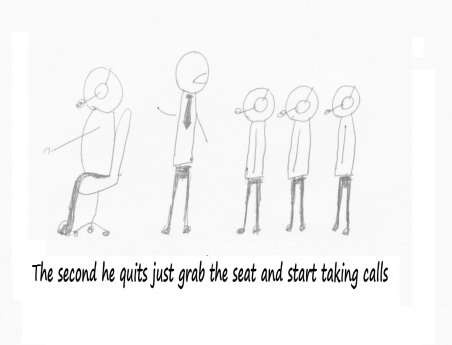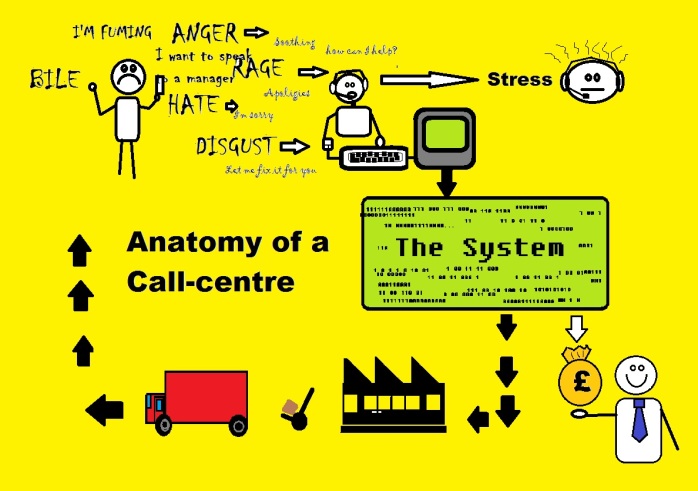At first glance call-centres and restaurants couldn’t appear more different, but the way I see it they’re really quite similar. Both feature itinerant workforces doing long hours with low pay running the gauntlet of dealing with the general public day in day out. Just take this article in the Guardian on how to complain in a restaurant. It could easily be wtitten about the call centre. In fact so much so that I’ve adapted many of the points as one thing I’m asked quite often is what tips I have for dealing with call centres.
Anyway, here is my adapted list for how to get customer service satisfaction:
Don’t call whilst drunk
Halfway through a bottle of wine is probably not the best time to call a call centre with that problem of yours and is more likely to end in confrontation than resolution.
Don’t ask to speak the the manager
The restaurant article makes the point that in the restaurant bad service is usually down to poor management, training and recruitment, with staff being innocent victims caught in the crossfire. This definately does apply to the call centre where what agents can and can’t do is often rigidly defined…… by management. Added to the fact that in the call centre the manager doesn’t actually want to speak to you anyway so all you’re doing is messing up my hard-won call stats. Definitely don’t begin a call this way as it will just turn me against you
Make your point plainly and politely
This goes without saying. Quite often the agent knows what the problem is, even sympathises with you. Keep them onside and more they will do what they can to help.
Put yourself in their shoes
The trick here, according to the restaurant article, is differentiating between genuine rudeness and laziness and staff having a genuinely hard time dealing with a crisis, or a surge in demand. In the call centre this means don’t shout at someone because you’ve been hanging on the line for 40 minutes. They’ve probably been having the day from hell and as the article states “picking on people who are clearly having a hard time of it is tantamount to bullying.”
Don’t talk to people as if they’re idiots
In my call centre the chances were you were speaking to someone working their way to wards a MSc in biochemistry. Just because someone works in a call centre doesn’t mean they’re stupid.
The menu is not optional
Again, this applies equally to the call centre – in fact even more so. I once had a row with a customer because I couldn’t fit their greeting on an item within the space which the system allowed. They just didn’t understand that there was a character limit which was set in stone and thought that somehow I should be able to change this and that I wasn’t. Dealing with a call centre you really need to know
Know when to walk away
Sometimes, you will never get satisfaction. I’ve worked for companies which just did not care and would let customers throw themselves onto the rocks of frustration over and over. The customers clearly thought that in the rules of customer service land that something must give, if only their complaint would make it to the right person. This blind belief would lead to them spending hours on the phone, letter writing and emailing.



